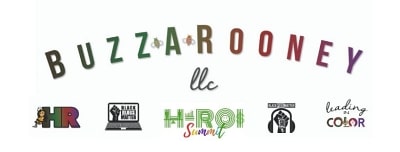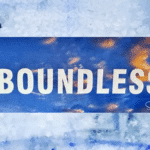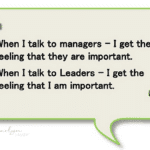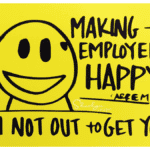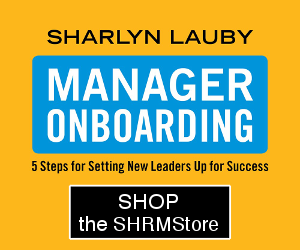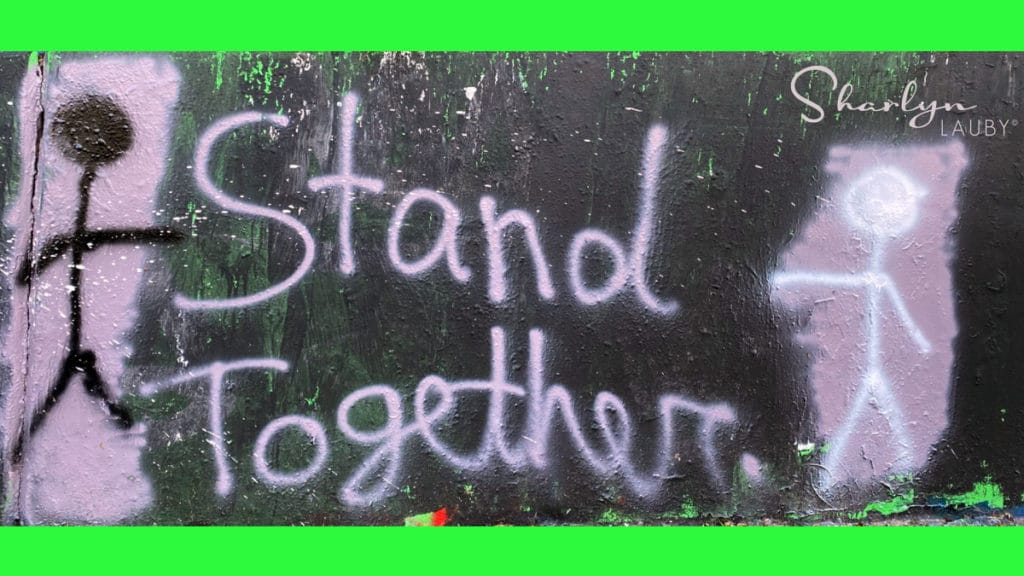
This is a very long introduction to today’s article. I hope you will indulge me.
A couple years ago, I went to a conference where CEOs were talking about employee activism. Multiple CEOs admitted that over the years they’ve felt it was important to remain neutral when it comes to politics and social injustice. But that they were changing their stance on this because their employees were demanding it. Employees want to know that the companies they work for are going to support what’s just and right.
That doesn’t mean that everyone needs to be a protester. Don’t get me wrong. I have a lot of respect for people who are very vocal about their dissatisfaction with the status quo. But that being said, not everyone has to display their views in the same way to be effective.
I read a quote recently in The Washington Post from Dexter Banks, a Black project manager, in response to the Black Lives Matter movement that said “It’s white people’s participation, that’s the difference. They’re the ones who have to see it.” His comment made me realize I need to find a way to do more as an ally. But I’ll be honest, I’m not a protester. I support Black Lives Matter. I understand that I’m a person of privilege and this isn’t about me. I’m listening and reading. And I’m trying to find ways to do more.
I’ve been getting notes from readers asking how they can be a better ally to the Black community and how they can help their organizations navigate through this change. HR Bartender has always been about providing actionable, practical resources. So, in the hopes of doing just that, I reached out to an HR colleague who has been talking and writing about this for a long time.
Sarah Morgan has been in HR for more than 20 years. She is currently senior director of human resources for a global home security company and the founder of the blog The Buzz on HR (which is where I got to know her work). I asked Sarah if she would share her insights here and thankfully, she said yes.
Sarah, thanks for being here. What does Black Lives Matter mean to you?
[Morgan] To me, Black Lives Matter is a rallying cry for the world to join the fight to dismantle the systems of white supremacy that keep Black people oppressed. This applies to being brutalized and over policed by law enforcement and regular citizens in our communities as well as to being denied full and equal access to wealth, affordable housing, healthcare, and education. It also applies to being consistently marginalized as a people while our cultures and resources are continuously appropriated without recognition or reparations.
As a person of privilege, I know it’s important to read and listen to Black voices to learn to be a better ally. A few years ago, you started the #BlackBlogsMatter movement. Tell us why you started it and how white people (like me) can use it to become more educated.
[Morgan] #BlackBlogsMatter started in 2017 as a 28-day writing challenge to myself to push myself to speak thoughts and feelings surrounding being Black in the workplace and in the world that I had been suppressing.
Over the next 3 years, it blossomed into a movement to advance conversation around the toughest topics in diversity, equity and inclusion within the HR online community space. Several other well-known HR bloggers (Keirsten Greggs, Janine Dennis, Jazmine Wilkes, Tamara Rasberry, Victorio Milian, and Chris Fields, to name a few) joined the annual challenge to amplify the signal and add additional thoughts to the #BlackBlogsMatter conversation. It also created a community of sharing among Black bloggers across all blogging genres.
2020 is the last year of the #BlackBlogsMatter writing challenge. The microblog challenge will continue during Black History Month each year AND the sharing community of Black bloggers will continue to use it to promote their content. I am building a blog roll and influencer program with the #BlackBlogsMatter movement to help Black bloggers to expand their reach and monetize their content. And I have added #BlackPodsMatter to include the growing area of podcasting to the movement’s arsenal.
However, all the #BlackBlogsMatter writing challenge content for the 4 years of the challenge remain available on my blog for anyone who wants to read it now. The content remains very relevant and evergreen. I look forward to the day when we’ve advanced as a society and this content becomes evidence of the way things used to be vs the way things still currently are.
I’m hearing from HR professionals that they want to do more as a Black Lives Matter ally, but they’re concerned about getting pushback from senior management. Specifically, in terms of existing programs (i.e. “We already have diversity and inclusion (D&I) programs. Why do we need to do more?”) Would you say that existing D&I programs are sufficient? And if we need more, what should organizations consider?
[Morgan] Existing D&I programs are not moving the needle to close the gender pay gap. Existing D&I programs are not moving the needle to improve the daily experience of BIPOC at work such that microaggressions, harassment, discrimination, and bullying cease. Existing D&I programs are not creating more opportunity for those with physical and mental disabilities to be accommodated as needed by their employers. Existing D&I programs are not creating a free-flowing pipeline of talent from marginalized communities that can be hired, developed and promoted.
So no, they are not sufficient. The existing D&I programs need to be doing more to make sure that this is what’s happening in the organization’s where D&I programs exist. Because all the cultural celebrations and employee resource groups (ERGs) and other ‘inclusion’ celebratory efforts mean nothing if the issues I mentioned in the preceding paragraph have not and are not being actively addressed.
You’re an “in the trenches” HR professional. What advice would you give to fellow HR pros who have employees saying, “All Lives Matter”? And on the flip side, how can an HR pro address comments such as A.C.A.B.?
[Morgan] First, I need to say that I am more worried about the HR pros who are saying ‘All Lives Matter’ than I am about the employees. Human resources exists to be the gatekeeper and ambassador of the organization’s culture; to ensure we have inclusive and welcoming workplaces. We cannot do that if our own personal response to the outcry from a group of our employees to ongoing harm, pain, and trauma is ‘yeah … but…’. More than any other business focal area, HR has to grasp and be willing to embrace Black Lives Matter for themselves.
It is important to note that many of us are unwilling or unable to do this because of our own internalized supremacy. For HR pros who find themselves struggling with this, I encourage you in the strongest of terms to start working on your own antiracism as soon as possible. Because these kinds of views in HR cause real, tangible harm to people’s lives and livelihoods. I put together a list of resources in this blog post that can help you to get started. These same resources can be shared with other leaders and with employees who need or want help in becoming antiracist. I am also hosting a 2-day workshop in October to help HR professionals work on their antiracism awareness and building equity into their workplace culture.
For HR pros who encounter employees saying, ‘All Lives Matter’, the response is — “yes, all lives matter. However, we need a reminder to those who can’t seem to remember that about Black people so that is why we’re saying Black Lives Matter more loudly in this moment”.
For HR pros who encounter employees saying, “All Cops Are Bad”, the response is – ‘with the brutality we see and with the ‘blue code of silence’, it certainly feels this way. However, not all cops are bad any more than any other profession of people is all bad or all good. What’s important now is putting an end to the brutality and over policing which leaves so many people afraid to call and/or interact with police.’
Last question. If you could give people one piece of advice on how to support others as an ally during this time, what would it be?
[Morgan] Be the most compassionate, considerate and vulnerable version of yourself that you have ever been during this time. At work and at home. With others and with yourself. Be a safe space.
This pandemic coupled with the racial reckoning ignited by the murder of George Floyd have people stressed to levels that most have never seen or known in their lifetimes. I discussed this extensively during my #ReOpeningAfterRona series on my podcast and blog. We are all experiencing what’s known as a ‘discreet crisis with a non-finite loss’ resulting in both coping and support fatigue. This leads to the kind of trauma that you see in people who have survived an active warzone. We will see the effects of this on our minds and bodies for years to come.
While we are still in this moment, it is really important for us to be kind to one another and to ourselves. We have to encourage calm and rest. We have to encourage moments of normalcy and relaxation. We have to encourage thriving thru wellness and community and giving. And, most of all, we have to be honest with ourselves and with our employees so that they feel psychologically safe enough with us as leaders to let us know when and how they are struggling.
That begins with being a role model for self-care and for professional vulnerability in the workplace. I do this by taking time off and encouraging my team to do the same. I do this by allowing them the flexibility to work and tend to the needs of their personal life, whatever that means for them, with no judgement. I do this by checking in regularly on how they are really doing. I do this by telling them about the many ways in which I struggle and am struggling during this time, including my anxiety episodes and my brain fog and the anger and hurt I feel when I think about what happened to George Floyd and Breonna Taylor and Ahmaud Arbery and Christian Cooper and Elijah McClain most recently. This has opened the door for many honest and open conversation about the state or our world and the state of our work, which makes getting thru the Year of ‘Rona a little easier.
I want to extend a huge thank you to Sarah for sharing her expertise and insights with us. To reference all of the resources that she mentioned during the interview, I’ve put a list with links at the bottom of this article.
I know today’s conversation is going to stretch many of us outside of our comfort zones. As Sarah mentioned, HR professionals are the ambassadors to the company’s culture, and we have to figure this out. It doesn’t mean that every organization will adopt the same approach. Nor do they have to. But hopefully it opens the door for conversations about what matters in our personal and professional lives.
P.S. Here are a list of the resources that Sarah mentioned during this interview. I’ve also put them in a PDF if you’d like to download it or share with others.
Image captured by Sharlyn Lauby at the 34th Street Graffiti Wall in Gainesville, FL
17
